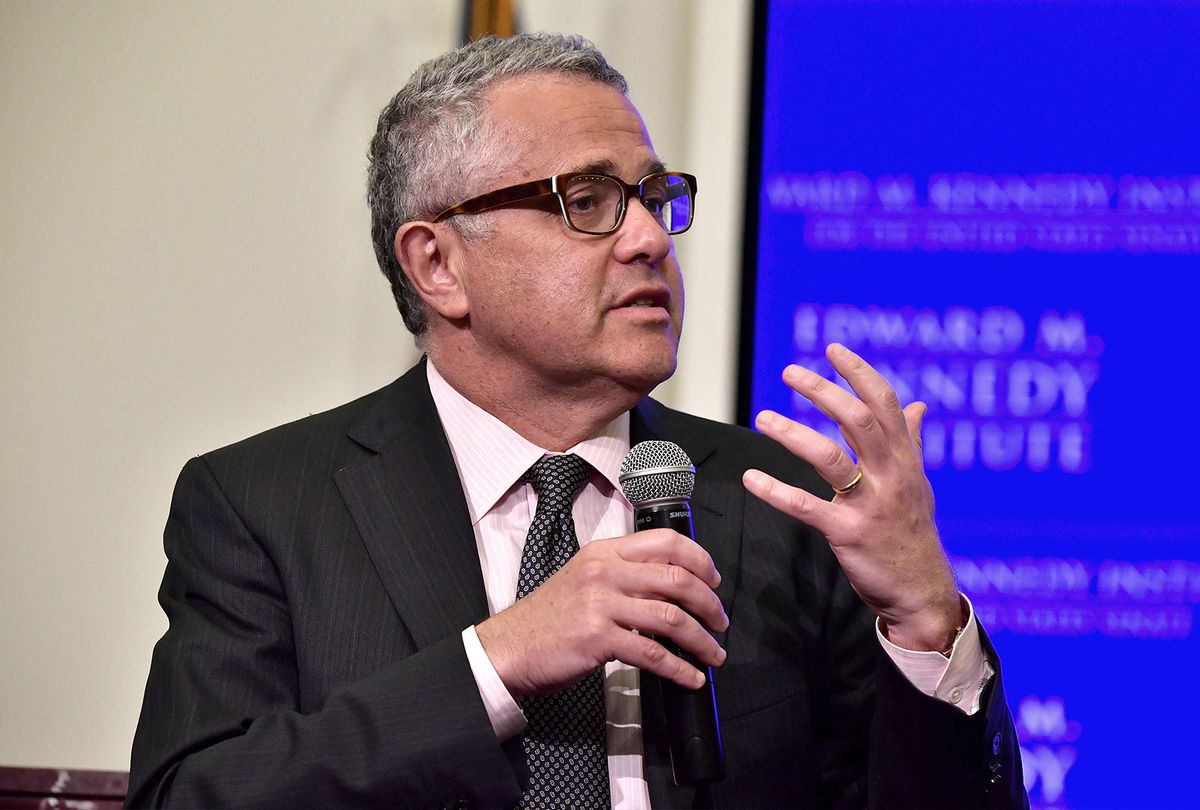On Thursday afternoon, were you also surprised to see disgraced legal analyst and Ryan Murphy adaptee Jeffrey Toobin re-emerging from a seven-and-a-half-month shame hiatus to reclaim his seat at CNN, where he had been placed on leave following an incident in which he was observed by New Yorker and WNYC co-workers masturbating on camera during a work Zoom call? In his first few minutes back on the air, Toobin performed a ritual act of penance — which, in a concession to discipline, I will not describe as "self-flagellation" — and after witnessing the good-natured grilling by anchor Alisyn Camerota, I still have questions beyond her opening salvo of "What the hell were you thinking?"
Is the cable news on-air legal analyst hiring landscape so dire that the network had no choice but to hold Toobin's position for him for two-thirds of a year while he worked on becoming, as he told Camerota, "a person people can trust again"? Was his masturbation incident, as Toobin said, a "deeply moronic and indefensible" choice that made performing community service while "trying to be a better person" necessary, or was it "one terrible mistake," as an unnamed CNN executive told The Washington Post, that shouldn't "define a person"? Is the cable news audience this hungry for legal analysis from makers of "deeply moronic" decisions? (And what Olivia Pope knock-off advised Toobin to tell us he has been "working in a food bank" in order to improve himself, like a slacker staring down the end of junior year and desperate to cobble together an adequate college application? Is it possible to cringe so hard at the TV you develop a cramp?)
Does this set a precedent at CNN that the entire staff understands and feels comfortable with? Would the network hire Toobin today if he hadn't already been a contributor before he got fired by the New Yorker as a result of their internal investigation — which Toobin assures us revealed no further incidents than the one caught on camera? If so, is this climate of forgiveness transparent in CNN's job postings? What types of previous workplace misconduct that might come to light during a pre-employment background check would qualify for red-flag status in the network's HR department? If he had gone Inner Toobin (don't look at me, I didn't name his Harvard column!) during a CNN meeting instead, would the network have fired him for it? If the answer is no, how many times can CNN's on-air talent masturbate in front of their colleagues before HR takes action? Is there a different number for workers who don't appear on air? Is this information shared with all new hires in an orientation, or just the men?
Are the four years Kathy Griffin has remained fired from her CNN gig after one terrible mistake, compared to Toobin's seven and a half months of personal leave, an example of a gender grace gap? If one agrees with the network executive that a terrible mistake shouldn't "ruin [a person's] employment opportunities for life," is there not a wide terrain of other opportunities available for someone of Toobin's experience and stature, outside of TV news celebrity, that could keep him from eviction or ruined credit? To paraphrase Ebenezer Scrooge, are there no Substacks, no Netflix option checks, no quiet consulting gigs? Is downgrading a man's celebrity status considered a cruel and unusual punishment in the media industry? On a scale of one to "flashed by a coworker," how degrading should we understand that to feel?
And finally, how should viewers expect CNN to handle legal analysis of stories about workplace sexual misconduct or harassment, especially when covering the industry itself? Level with us: Just how awkward is that going to get?



Shares